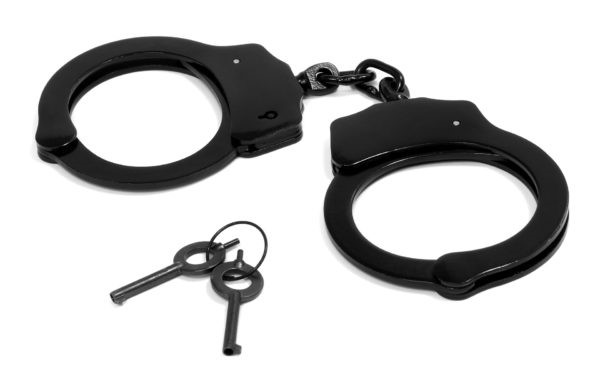RESISTING ARREST
It is quite common for a charge of resisting arrest to occur from a seemingly innocuous situation that escalates due to panic or losing one’s “cool”.
Some people feel confronted when stopped by a police officer and may respond in an uncooperative manner, flee the scene, or even become aggressive.
This can lead to a charge of resisting arrest, which is a serious charge that can land you in jail and with a lifelong criminal record: a harsh price to pay for losing your temper.

What is resisting arrest?
If a police officer tries to detain or arrest you and you physically resist, you can be charged with resisting arrest.
As with the related offence of obstructing a peace officer, resisting arrest generally requires active physical resistance or force rather than passive uncooperative behaviour like remaining silent or refusing to walk to the police car.
The offence is outlined in Section 129 of the Criminal Code of Canada.
It covers anyone who:
(a) resists or wilfully obstructs a public officer or peace officer in the execution of his duty or any person lawfully acting in aid of such an officer,
(b) omits, without reasonable excuse, to assist a public officer or peace officer in the execution of his duty in arresting a person or in preserving the peace, after having reasonable notice that he is required to do so, or
(c) resists or wilfully obstructs any person in the lawful execution of a process against lands or goods or in making a lawful distress or seizure,
The Code refers to “peace officers” and “public officers”. This could include any of the following individuals on official duty:
- Calgary police officers
- RCMP
- Canadian Forces officers
- Customs officers
- Mayors
- Pilots
- Bailiffs
What are the penalties for resisting arrest?
It is unlikely you will go to jail if you have never been convicted of a crime and you did not use significant force in resisting arrest.
However, resisting arrest is a hybrid offence that can be prosecuted as either a misdemeanour or felony – usually dependent on the degree of force used. The possibility of up to two years’ jail time is on the table and a custodial sentence is especially likely if any link to organized crime is established.
With a competent criminal defence lawyer and other factors in your favour, you may be able to escape with a discharge, which means you will not have a criminal conviction on your record if you plead guilty.
Alternatively, you may pay a fine of several thousand dollars and/or be released on probation and serve your sentence in the community for a period of up to three years.
Often, the long-term penalties you pay are more severe than the short-term ones – meaning that a criminal record follows you around for life and may impact employment, travel, immigration status, and more.
It is rarely a good idea to simply plead guilty and accept your fate. Explore the available options with your criminal defence lawyer. Cory Wilson will work for your freedom and if you are found guilty, negotiate the least severe penalties possible.
What elements of resisting arrest need to be proven in court?
To be convicted of resisting arrest, each of the following elements must be proven beyond a reasonable doubt:
- You resisted a peace or public officer who was attempting to arrest you
- The arrest was lawful
- You knew they were an officer engaged in a lawful duty, and
- The resistance was wilful
The officer must have been carrying out a lawful duty with reasonable grounds to make the arrest and or you cannot be found guilty of resisting arrest.
Because many of the elements of this offence are open to interpretation and debate, the assistance of an experienced criminal defence lawyer is invaluable when liaising with the prosecution or making a case in court.
What common charges are associated with resisting arrest?
If you are charged with resisting arrest, you are likely suspected of committing a “primary” offence that led to a police officer trying to arrest you.
This could be anything but traffic stops for impaired driving/over 80 and public intoxication are particularly common examples.
Other primary offences associated with resisting arrest include:
- Juvenile crimes
- Drug charges
- Assault
- Theft
Possible defences for resisting arrest
If you cannot argue mistaken identity and are confirmed as the individual involved in the alleged resisting arrest offence, there are usually two possible defences that can be used in court:
- Violation of Constitutional Rights: You have certain rights before and after your arrest as detailed in the Canadian Charter of Rights and Freedoms. If the police fail to follow these rights to the letter, our legal team may be able to use it in your defence.
- Unlawful Arrest: If your arrest was unlawful, the case should be dismissed. For instance, if the police officer did not have the authority to arrest you or did not have reasonable grounds, you are not legally required to comply.
Call Us To Arrange A Confidential Consultation
To speak with Cory Wilson or arrange a free, no-obligation consultation with Wilson Criminal Defence, call 403-978-6052 or email us here.